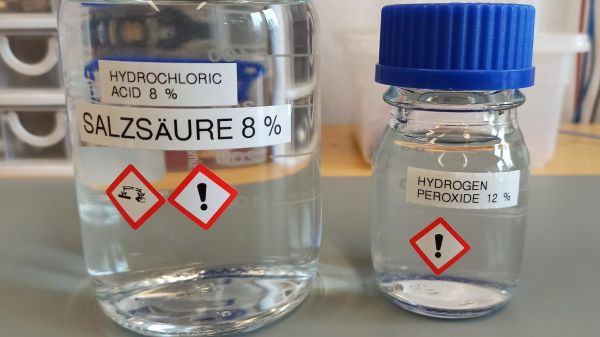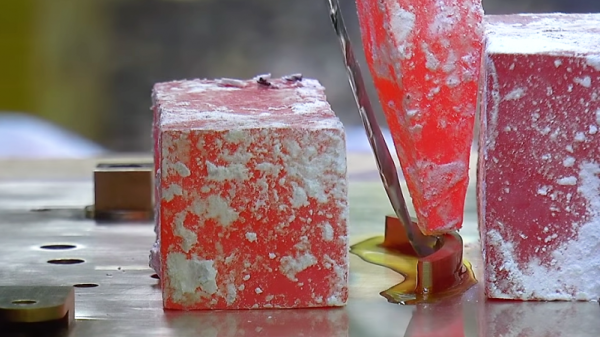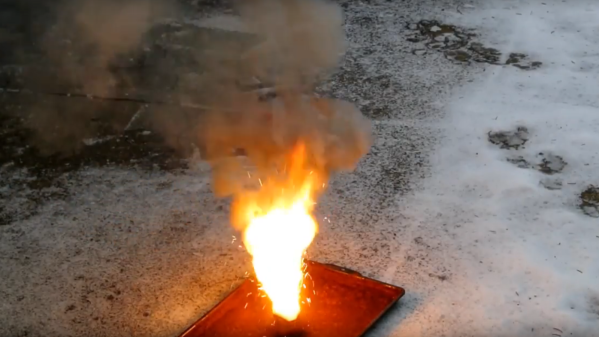Although Charles Hall conducted his first successful run of the Hall-Héroult aluminium smelting process in the woodshed behind his house, it has ever since remained mostly out of reach of home chemists. It does involve electrolysis at temperatures above 1000 ℃, and can involve some frighteningly toxic chemicals, but as [Maurycy Z] demonstrates, an amateur can now perform it a bit more conveniently than Hall could.
[Maurycy] started by finding a natural source of aluminium, in this case aluminosilicate clay. He washed the clay and soaked it in warm hydrochloric acid for two days to extract the aluminium as a chloride. This also extracted quite a bit of iron, so [Maurycy] added sodium hydroxide to the solution until both aluminium and iron precipitated as hydroxides, added more sodium hydroxide until the aluminium hydroxide redissolved, filtered the solution to remove iron hydroxide, and finally added hydrochloric acid to the solution to precipitate aluminium hydroxide. He heated the aluminium hydroxide to about 800 ℃ to decompose it into the alumina, the starting material for electrolysis.
To turn this into aluminium metal, [Maurycy] used molten salt electrolysis. Alumina melts at a much higher temperature than [Maurycy]’s furnace could reach, so he used cryolite as a flux. He mixed this with his alumina and used an electric furnace to melt it in a graphite crucible. He used the crucible itself as the cathode, and a graphite rod as an anode. He does warn that this process can produce small amounts of hydrogen fluoride and fluorocarbons, so that “doing the electrolysis without ventilation is a great way to poison yourself in new and exciting ways.” The first run didn’t produce anything, but on a second attempt with a larger anode, 20 minutes of electrolysis produced 0.29 grams of aluminium metal.
[Maurycy]’s process follows the industrial Hall-Héroult process quite closely, though he does use a different procedure to purify his raw materials. If you aren’t interested in smelting aluminium, you can still cast it with a microwave oven.














